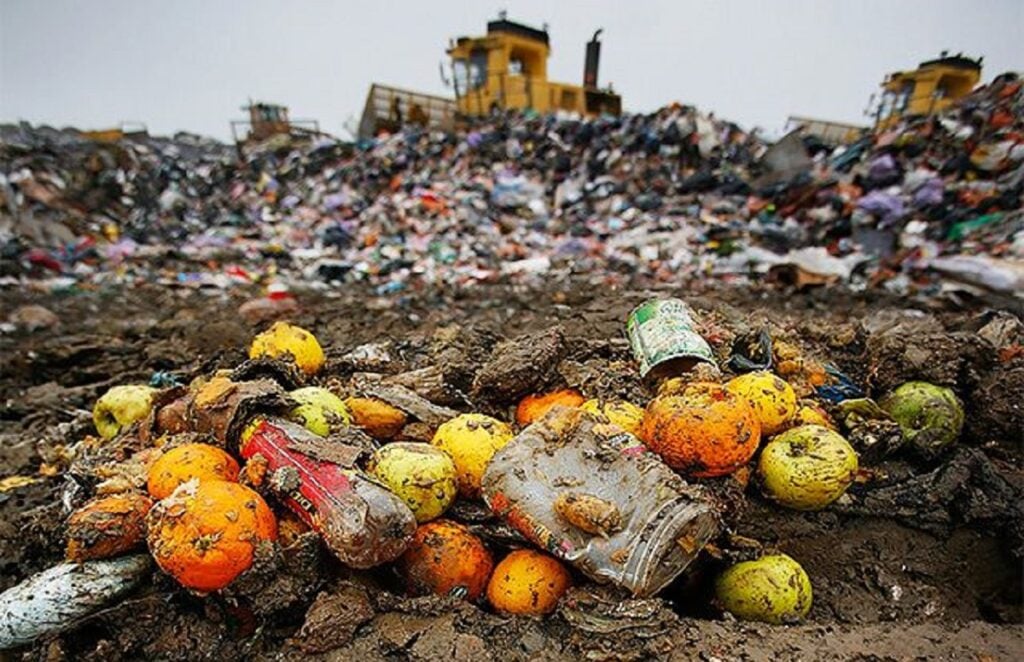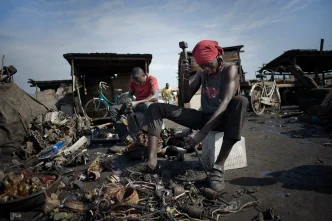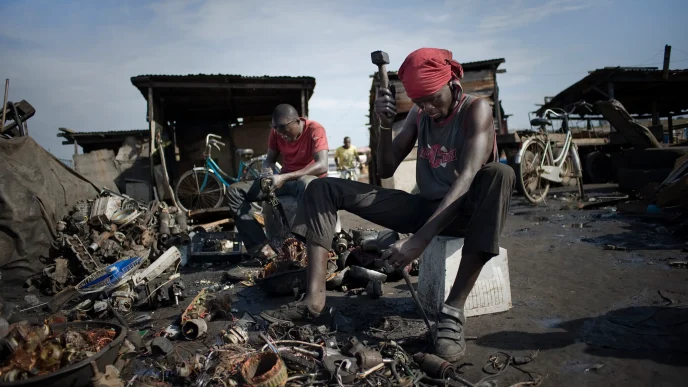BY MARTHA NWANUA-OLUMIDE
I still hear my mum’s voice echoing through the house: “No food wastage!” If we had rice and stew on Monday, Tuesday’s lunch was sure to be what she called réchauffé—yesterday’s food, lovingly reimagined and reheated. As a child, I rolled my eyes and staged tantrums to avoid leftovers, but my mum stood firm: every grain had to be eaten.
What felt like punishment then, I now see as wisdom; she was reducing waste, saving money, and teaching us to value food. She was not just a disciplinarian in the kitchen; she was living out an ethic of environmental stewardship long before we had words like “climate action.” Like many women across Nigeria and beyond, she was shaping food systems and sustaining her family through everyday acts of care, an unsung environmental champion in her own right.
The Global Food Waste Crisis
Advertisement
What I once dismissed as a childhood inconvenience is today part of a global crisis. Around the world, we produce more food than we eat. The FAO’s landmark analysis estimates that roughly one-third of food produced for human consumption is lost or wasted, about 1.3 billion tonnes each year. The UNEP Food Waste Index 2024 estimates 631 million tonnes of household food waste in 2022, more than one billion meals thrown away every single day, at a time when hundreds of millions of people face hunger. Consequently, the climate cost is enormous: food that is not eaten accounts for about 8–10% of global greenhouse gas emissions, driven largely by methane released when organic waste decomposes in landfills and dumpsites. Methane is a short-lived but highly potent climate pollutant; over a 20-year period, one tonne of methane traps about 80 times more heat than one tonne of CO₂. This makes food waste not just a waste management issue, but a fast-acting driver of climate change.
Nigeria’s Paradox: Hunger and Waste In Nigeria
In Nigeria, the paradox is blunt. The World Bank estimates we lose or waste around 40% of the food we produce each year, using about 31% of agricultural land for food that never nourishes anyone, and those losses account for roughly 5% of Nigeria’s total greenhouse gas emissions. With organic matter making up about half of municipal waste on average (and even more in some cities), our dumpsites become methane hot spots.
Advertisement
Réchauffé as Climate Action
This is why I see réchauffé – the practice of reinventing leftovers, not as an afterthought, but as climate action from the kitchen. If wasted food were a country, it would stand among the top emitters. But the most elegant solution is also the simplest: eat what you have. The United Nations and leading analysts have repeatedly identified reducing food waste (alongside shifting toward plant-rich diets) as among the most impactful climate actions available to ordinary people and communities. Each time we finish what we cook or transform yesterday’s stew into today’s fresh lunch, we cut emissions from decomposition and avoid the need to produce replacement meals.
Why Women Must Be at the Centre
There’s another truth we must state clearly: kitchen-based climate action is gendered. “Globally, women, especially in low- and middle-income countries, play a leading role in managing food preparation, purchasing, and preservation. In Nigeria, women are often the decision-makers on how food is cooked, stored, and shared. That means empowering women with knowledge and tools for climate-smart cooking (like leftover reuse and plant-based diversification) can unlock enormous climate co-benefits.” Beyond norms, this is also about time: UN data show women spend more hours per day on unpaid care and domestic work than men, a gap that persists worldwide and shapes who does the daily work of preventing food waste at home. Recognising this “invisible climate labour” is essential; millions of women are already making climate-relevant decisions at the stove, fridge, and market stall.
Advertisement
What Climate-Smart Réchauffé Looks Like
- Eat what you have: Plan portions realistically, store leftovers promptly, and use them within days. Food safety authorities advise refrigerating leftovers within two hours, eating them within 3–4 days, or freezing them for longer. Always reheat to 74–75°C / 165°F until steaming hot.
- Stretch with plants: Turn yesterday’s rice or stew into a new dish by adding vegetables, legumes, or leafy greens. This not only boosts nutrition but also lowers the meal’s carbon footprint compared with adding more meat.
- Mind methane: Every portion rescued from the bin is one less contribution to methane emissions. Because methane is so potent in the near term, each avoided scrap matters.
These may seem like small actions, but multiplied across millions of kitchens, they reduce emissions, ease strain on family budgets, and contribute to global climate goals.
From Households to Policy: A Call to Action
Framed this way, the kitchen becomes a space where gender equity and climate resilience meet. But we cannot expect women’s unpaid labour to carry the load indefinitely. To halve food waste and meet our climate commitments, we need systemic support:
Advertisement
- Eat What You Have: Normalise and promote the culture of consuming what is already cooked or purchased before preparing new meals. Schools, media, and community campaigns can champion this ethic, turning it into a collective climate practice rather than just a household rule. Eating what we have reduces waste, saves money, and strengthens food security.
- Invest in women: Provide affordable, efficient appliances, cold storage, and clean energy for cooking.
- Educate communities: Elevate leftover management as a valued skill and climate-smart practice.
- Recognise leadership: Put women at the centre of food programs and climate policy as educators, innovators, and decision-makers.
Conclusion
I think back to my mother, to the way her réchauffé meals were never second-class, always hot, garnished, and nourishing. She was modelling a sustainable food ethic long before we had the vocabulary for carbon footprints. Today, as Nigeria and the world confront the climate crisis, that ethic still points the way: eat what we have, elevate leftovers with plant power, store food safely, and recognise the women whose daily choices make these climate wins possible. Climate action does not only happen in global summits and COP meetings, it happens in the kitchen, one fridge, one family, one reimagined plate at a time.
Advertisement
If one billion meals are being wasted every day, then one billion opportunities exist to do better, one household, one fridge, one warm, re-imagined plate at a time.
Martha Nwanua-Olumide is a biomedical scientist and global health advocate with over five years of experience across clinical diagnostics, research, and quality assurance, particularly in low- and middle-income countries (LMICs).
Advertisement
Views expressed by contributors are strictly personal and not of TheCable.











